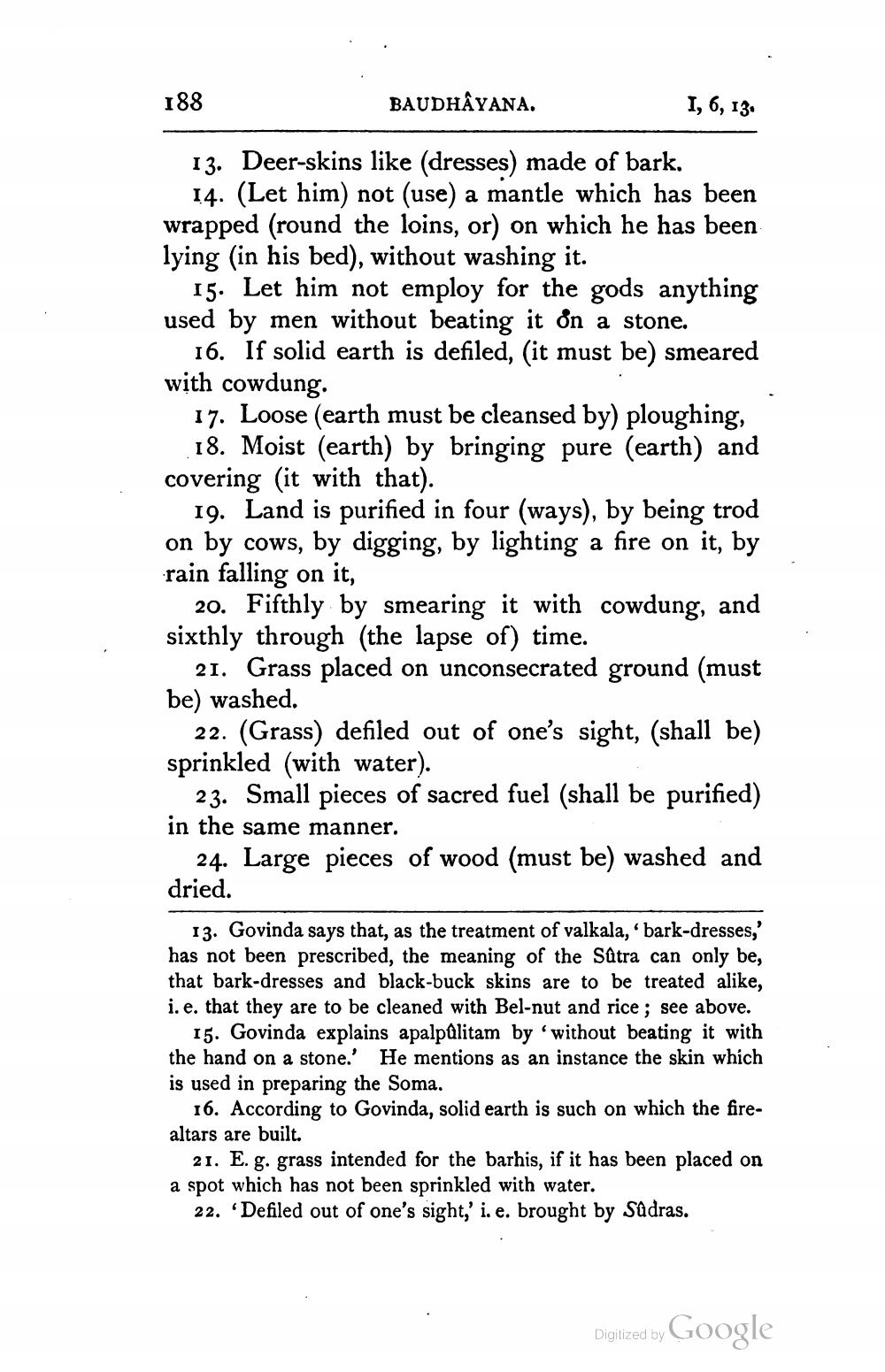________________
188
BAUDHÂYANA.
I, 6, 13.
13. Deer-skins like (dresses) made of bark.
14. (Let him) not (use) a mantle which has been wrapped (round the loins, or) on which he has been lying in his bed), without washing it.
15. Let him not employ for the gods anything used by men without beating it on a stone.
16. If solid earth is defiled, it must be) smeared with cowdung.
17. Loose (earth must be cleansed by) ploughing,
18. Moist (earth) by bringing pure (earth) and covering (it with that).
19. Land is purified in four (ways), by being trod on by cows, by digging, by lighting a fire on it, by rain falling on it,
20. Fifthly by smearing it with cowdung, and sixthly through (the lapse of) time.
21. Grass placed on unconsecrated ground (must be) washed.
22. (Grass) defiled out of one's sight, (shall be) sprinkled (with water).
23. Small pieces of sacred fuel (shall be purified) in the same manner.
24. Large pieces of wood (must be) washed and dried.
13. Govinda says that, as the treatment of valkala, 'bark-dresses,' has not been prescribed, the meaning of the Sûtra can only be, that bark-dresses and black-buck skins are to be treated alike, i. e. that they are to be cleaned with Bel-nut and rice; see above.
15. Govinda explains apalpůlitam by 'without beating it with the hand on a stone.' He mentions as an instance the skin which is used in preparing the Soma.
16. According to Govinda, solid earth is such on which the firealtars are built.
21. E. g. grass intended for the barhis, if it has been placed on a spot which has not been sprinkled with water.
22. Defiled out of one's sight,' i.e. brought by Sûdras.
Digitized by Google




